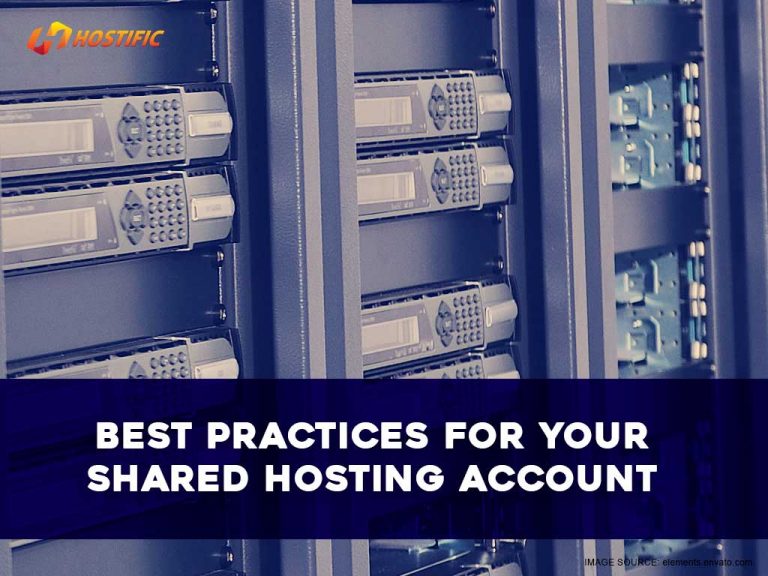Whatever industry or sector you find yourself in, it is imperative that you are informed. As a consumer of web hosting services, the requirement is still the same. You have to keep yourself in the know. Web hosting companies are continuously growing and changing to meet the needs of consumers. With that in mind, consumers should keep abreast of the services being provided, changes that are being or have been made to the services and pretty much all the information needed to ensure they make the best decision when choosing a web host, etc. To help, we’ve put together some best practices to get the best experience with your shared hosting account.
Table of Contents
Top 5 best practices when selecting hosting
1. Always read the terms of use in full
As mentioned above, consumers should be informed. One way of doing this is by reading and understanding the terms of use. The detail is always in the fine print, but unfortunately most people don’t practice reading it. It is however important that you do so because it is really how you equip yourself with the information needed to protect yourself and your business, as it relates to the web hosting aspect of it.
Ensure you read all of it, along with other related guidelines such as the privacy, unlimited, acceptable use and spam policies. You will also want to make sure that you read, in full, the domain registration and affiliate terms. These documents are long and unexciting, for the most part, but taking the time to read and understand them can end up saving you time and resources later on.
If your web host does not readily provided this information, it’s time to consider an other, as, the best web hosts takes a great deal of pride in transparency. So, the information is there for you to read and they will even encourage you to inform yourself about their plans and terms of agreement. After all, they want to ensure you know what you’re signing up for, so that all the parties involved know exactly what’s expected of one another.
2. Understand The different aspects of hosting packages
Blinding choosing a web host or web hosting package can be beneficial, but not to you. It could prove beneficial for the provider’s profits, but it could also hurt the company’s reputation, because you may complain that they didn’t provide something that they never promised in the first place. Therefore, it is important to understand the different aspects of a web hosting package before you decide on it.
Take the ‘unlimited’ aspect as an example. When a web hosting provider includes the word unlimited in its packages, it could mean a host of different things. It suggests that you get unrestricted privileges such as unlimited:
- Domains
- Sub-domains
- Email accounts
- Bandwidth
- Storage
- Websites
But, if you took the time to understand this aspect of the plan, you will realize that it is sometimes actually limited and is dependent on one factor or another. So, ensure that what you understand by unlimited is in sync with what your host means. Otherwise, choose a web host that is in line with what you want or decided if what another host is offering, could work for you. Just ensure that whatever decision is made is an informed one.
3. Forget the fluff if you don’t need them
It is easy to get carried away and pay for all the extra services being offered, but when you buy a web hosting plan, ensure you know what your absolute needs are and pay only for those products and services. If you don’t need the, don’t spend your hard earned money paying extra for them. You should know that some of the extras can actually be useful, but at the same time, you want to be very careful not to just say yes and buy something because it’s right before you.
A good and reputable provider will offer you options, of course, but they will suggest additional products and services that you actually need. For example, if you operate an eCommerce website or a site that collects or saves sensitive information, an upsell of SSL certificates will be in your best interest. This is because it will not only protect your business and its clients; it will also help your business grow in the long run. Website backup packages and dedicated servers are some of the other extra products and services that you may benefit from. But if you are in doubt, take some time to check it out. If your research says yes, go ahead and purchase the additional things; but if all or most of your research is saying you don’t need it, don’t buy it.
4. Take advantage of free domains offer
If your web host provider offers free domains, why not take advantage of it? Instead of spending the extra cash on a web hosting plan, use the free domain offer and save yourself some funds. You could even use that money to buy an extra product or service that you need to maximize the potential of your website.
5. Ensure your host’s IP Isn’t blacklisted
The idea that one bad apple spoils the bunch is true in the world of shared hosting. One bad customer is all it takes to spoil the experience for everyone. That one bad user can cause the IP of the shared server to be blacklisted and that can be a major issue for all other users, particularly if you use your website to operate your business. And the worst part about it is that, it can take a great deal of effort to get your server IP unlisted.
There are a number of things that must be done including ensuring all devices on the server are clean and that the mail server is properly configured and locked down to prevent it from sending messages to unauthorized users. Fortunately, there are ways to check to know if your server IP is blacklisted. Using Return-path Sender Score is one way.
Conclusion
There are a number of best practices that you can use to help you make educated and informed decisions when it comes to choosing and maintaining your shared hosting account. The key things are that you be informed, read the terms of use, understand the different aspects of your hosting package, buy only the products and services you need to run a safe and successful website, take advantage of free domains provided by your hosting provider and ensure that your IP server is not blacklisted. Remember these principles and they will serve you well.






